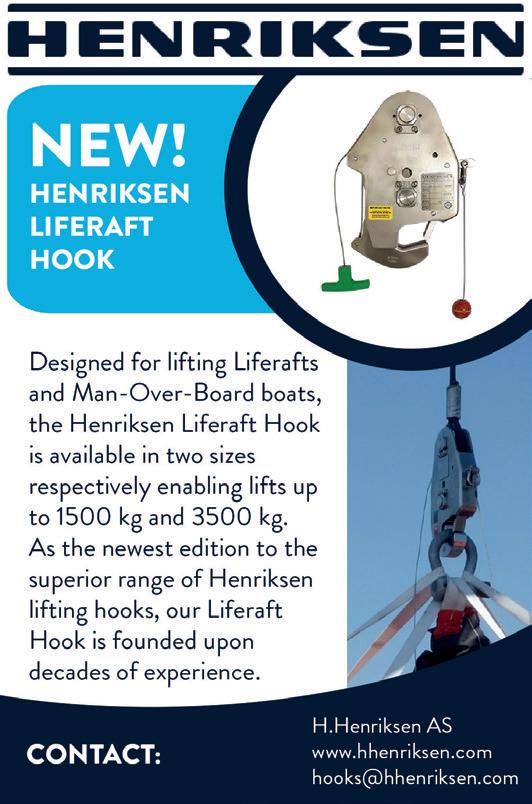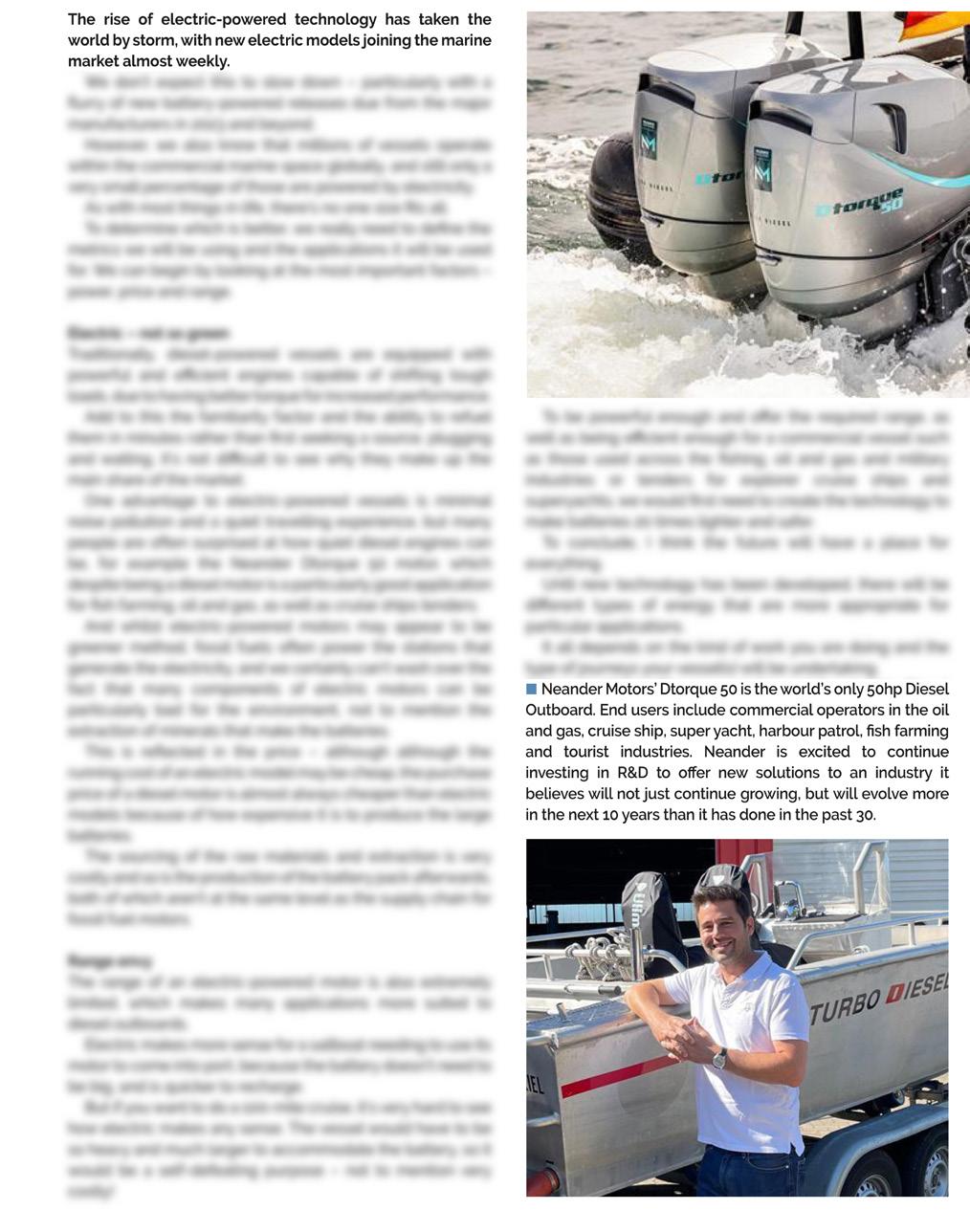
5 minute read
Diesel or electric?
OPINION: DIESEL OR ELECTRIC… PROS AND CONS
Neander Motors COO Joel Reid gives his opinion on the pros and cons of each propulsion type
The rise of electric-powered technology has taken the world by storm, with new electric models joining the marine market almost weekly.
We don’t expect this to slow down – particularly with a flurry of new battery-powered releases due from the major manufacturers in 2023 and beyond.
However, we also know that millions of vessels operate within the commercial marine space globally, and still only a very small percentage of those are powered by electricity.
As with most things in life, there’s no one size fits all.
To determine which is better, we really need to define the metrics we will be using and the applications it will be used for. We can begin by looking at the most important factors – power, price and range.
Electric – not so green
Traditionally, diesel-powered vessels are equipped with powerful and efficient engines capable of shifting tough loads, due to having better torque for increased performance.
Add to this the familiarity factor and the ability to refuel them in minutes rather than first seeking a source, plugging and waiting, it’s not difficult to see why they make up the main share of the market.
One advantage to electric-powered vessels is minimal noise pollution and a quiet travelling experience, but many people are often surprised at how quiet diesel engines can be, for example the Neander Dtorque 50 motor, which despite being a diesel motor is a particularly good application for fish farming, oil and gas, as well as cruise ships tenders.
And whilst electric-powered motors may appear to be greener method, fossil fuels often power the stations that generate the electricity, and we certainly can’t wash over the fact that many components of electric motors can be particularly bad for the environment, not to mention the extraction of minerals that make the batteries.
This is reflected in the price – although although the running cost of an electric model may be cheap, the purchase price of a diesel motor is almost always cheaper than electric models because of how expensive it is to produce the large batteries.
The sourcing of the raw materials and extraction is very costly and so is the production of the battery pack afterwards, both of which aren’t at the same level as the supply chain for fossil fuel motors.
Range envy
The range of an electric-powered motor is also extremely limited, which makes many applications more suited to diesel outboards.
Electric makes more sense for a sailboat needing to use its motor to come into port, because the battery doesn’t need to be big, and is quicker to recharge.
But if you want to do a 100-mile cruise, it’s very hard to see how electric makes any sense. The vessel would have to be so heavy and much larger to accommodate the battery, so it would be a self-defeating purpose – not to mention very costly!
To be powerful enough and offer the required range, as well as being efficient enough for a commercial vessel such as those used across the fishing, oil and gas and military industries or tenders for explorer cruise ships and superyachts, we would first need to create the technology to make batteries 20 times lighter and safer.
To conclude, I think the future will have a place for everything.
Until new technology has been developed, there will be different types of energy that are more appropriate for particular applications.
It all depends on the kind of work you are doing and the type of journeys your vessel(s) will be undertaking. 8 Neander Motors’ Dtorque 50 is the world’s only 50hp Diesel Outboard. End users include commercial operators in the oil and gas, cruise ship, super yacht, harbour patrol, fish farming and tourist industries. Neander is excited to continue investing in R&D to offer new solutions to an industry it believes will not just continue growing, but will evolve more in the next 10 years than it has done in the past 30.
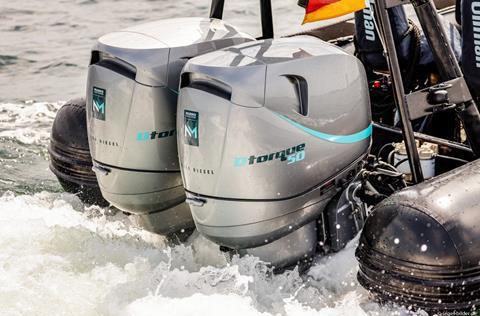
8 Dtorque 50 diesel
outboards
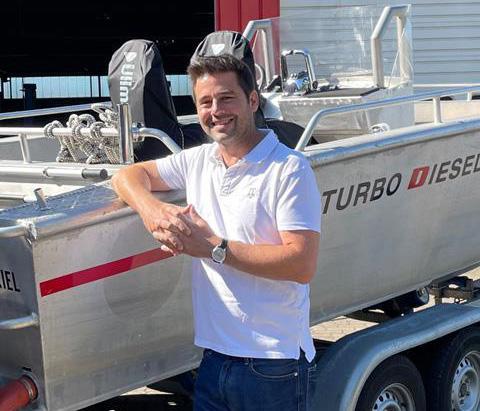
8 Joel Reid
Holland Shipyards Group has struck a deal with Trafikverket Sweden for the delivery of four autonomous all-electric ferries.
The ferries will sail in accordance with autonomy level 2, meaning they are remotely monitored but with crew on board to take control if necessary. Autonomous control will be from Trafikverket’s remote control centre based in Stockholm.
“We are extremely proud to be a part of this pioneering step in shipbuilding,” said Cor Hoogendoorn, director Holland Shipyards Group.
The deal includes the initial delivery of two ferries with four automooring facilities and two charging stations, a simulator facility and a remote control centre.
The tender covers the whole procurement of four ferries, eight automooring facilities, four charging stations and more.
The ferries measure 86 metres by 14.24 metres and have a 60 car capacity. While mooring, the vessels are charged by an onshore charging facility which takes approximately four minutes.
Safer transportation
Autonomous sailing technology is intended to increase passenger safety in the long run. With a fully operational system in place, responses are more consistent, removing the potential for human error and reducing the risk of unexpected events.
The first ferry is scheduled for delivery in the second half of 2024 with the remaining three at regular intervals thereafter.
FOUR ALL-ELECTRIC AUTONOMOUS FERRIES ORDERED
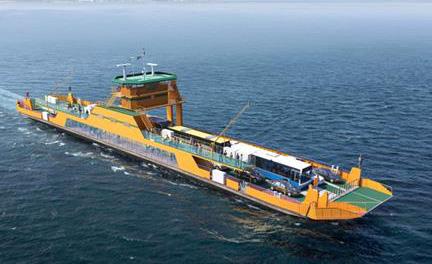
_Lemans Jan 2020.qxp_Lemans 22/04/2020 15:11 Page 1
8 The fully-electric autonomous ferry
For all your hoisting, mooring, lifting and towing solutions
We can supply you with a.o.: manual, electrical, fuel and hydraulic driven winches, windlasses and capstans; roller, pedestal, and sheave fairleads, panama chocks, complete towing and mooring systems to aid dredging salvage and fishing industries for hire or sale.
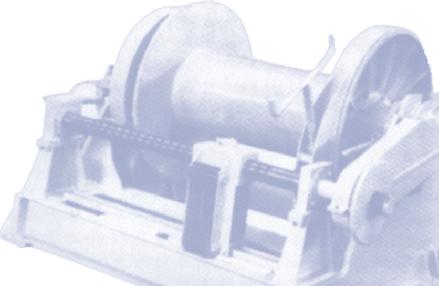
Lemans Nederland BV, Canadaweg 8 4661PZ Bergen op Zoom (Halsteren)NL Tel: +31 (0)164 680097 Fax: +31 (0)164 681971 E-mail: info@lemans-nederland.eu Website: www.lemans-nederland.nl
The next edition of MARITIMEJOURNAL will feature
PORT, HARBOUR & MARINE CONSTRUCTION
Contact the sales team on: +44 1329 825335
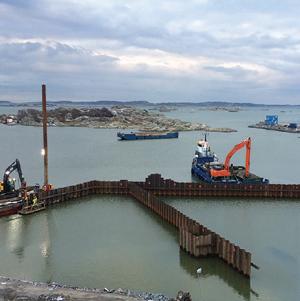
sales@maritimejournal.com
maritimejournal.com MARITIMEJOURNAL
COMMERCIAL MARINE BUSINESS
